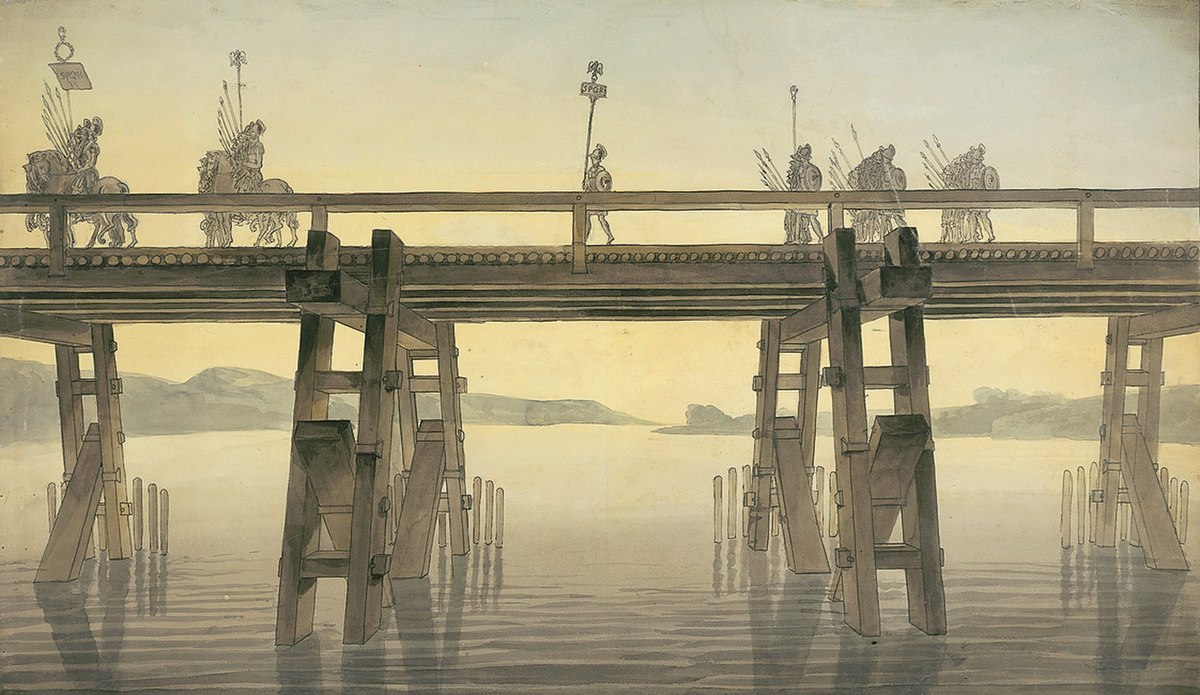
Rhine Campaign
Rhine RiverA need for prestige more than tactical concerns likely determined Caesar's campaigns in 55 BCE, due to Pompey and Crassus' consulship. On the one hand, they were Caesar's political allies, and Crassus's son had fought under him the year before. But they were also his rivals, and had formidable reputations (Pompey was a great general, and Crassus was fabulously wealthy). Since the consuls could easily sway and buy public opinion, Caesar needed to stay in the public eye. His solution was to cross two water bodies no Roman army had attempted before: the Rhine and the English Channel. Crossing the Rhine was a consequence of Germanic/Celtic unrest. The Suebi had recently forced the Celtic Usipetes and Tencteri from their lands, who resultingly had crossed the Rhine in search of a new home. Caesar, however, had denied their earlier request to settle in Gaul, and the issue turned to war. The Celtic tribes sent out a cavalry force of 800 against a Roman auxiliary force of 5,000 made up of Gauls, and won a surprising victory. Caesar retaliated by attacking the defenseless Celtic camp, and slaughtering the men, women, and children. Caesar claims he killed 430,000 people in the camp. Modern historians find this number impossibly high (see historiography below), but it is apparent that Caesar killed a great many Celts. So cruel were his actions, his enemies in the Senate wished to prosecute him for war crimes once his tenure as governor was up and he was no longer immune from prosecution. After the massacre, Caesar led the first Roman army across the Rhine in a lightning campaign that lasted just 18 days.
Historian Kate Gilliver considers all of Caesar's actions in 55 BCE to be a "publicity stunt" and suggests that the basis for continuing the Celtic/Germanic campaign was a desire to gain prestige. This also explains the campaign's brief time span. Caesar wanted to impress the Romans and scare the Germanic tribesmen, and he did this by crossing the Rhine in style. Instead of using boats or pontoons as he had in earlier campaigns, he built a timber bridge in a mere ten days. He walked across, raided the Suebic countryside, and retreated across the bridge before the Seubic army could mobilize. He then burned the bridge and turned his attentions to another feat no Roman army had accomplished before—landing in Britain. The nominal reason to attack Britain was the Britonic tribes had been assisting the Gauls, but like most of Caesar's casus belli it was just an excuse to gain stature in the eyes of the Roman people.
